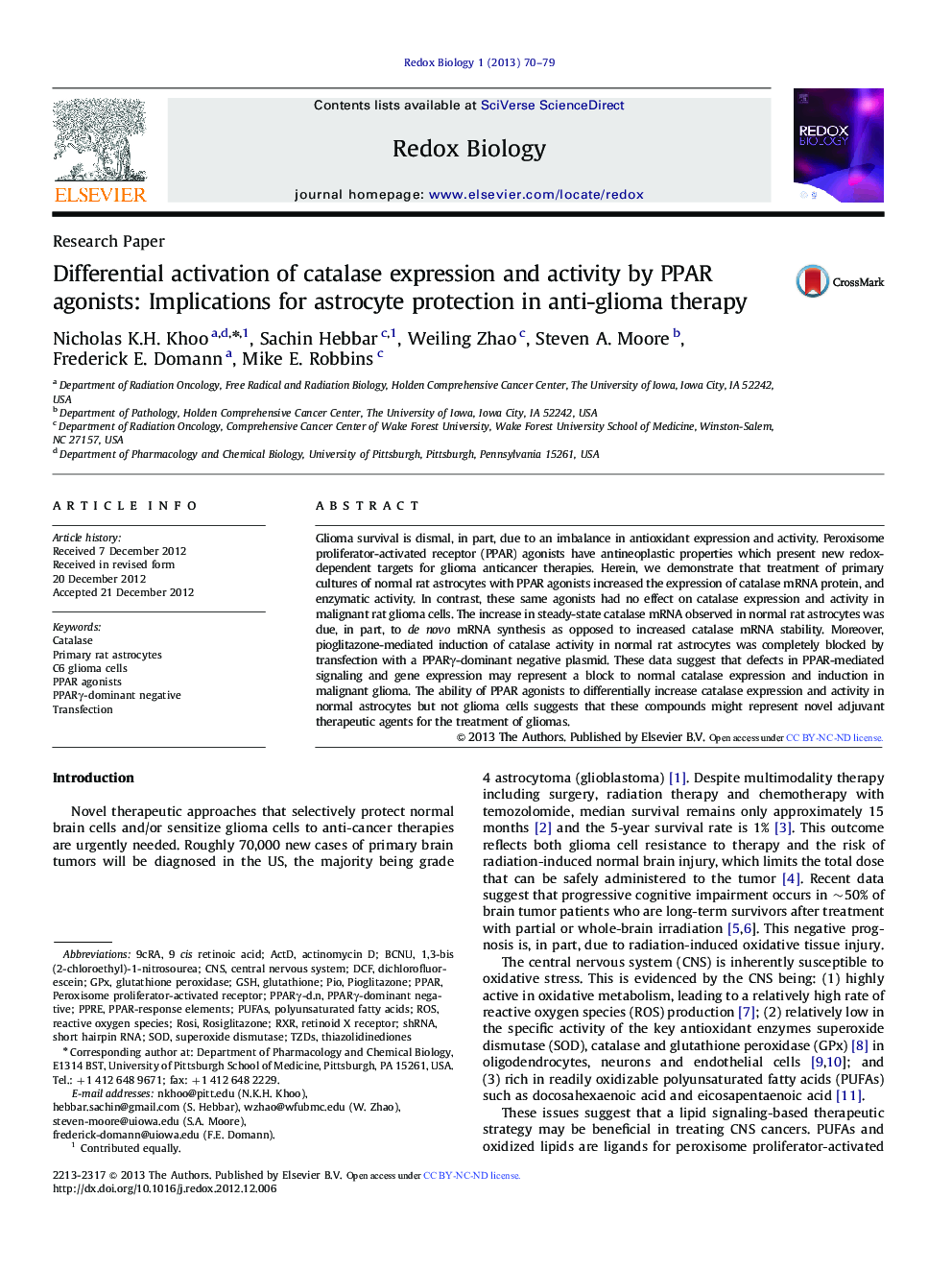| Article ID | Journal | Published Year | Pages | File Type |
|---|---|---|---|---|
| 1923234 | Redox Biology | 2013 | 10 Pages |
Glioma survival is dismal, in part, due to an imbalance in antioxidant expression and activity. Peroxisome proliferator-activated receptor (PPAR) agonists have antineoplastic properties which present new redox-dependent targets for glioma anticancer therapies. Herein, we demonstrate that treatment of primary cultures of normal rat astrocytes with PPAR agonists increased the expression of catalase mRNA protein, and enzymatic activity. In contrast, these same agonists had no effect on catalase expression and activity in malignant rat glioma cells. The increase in steady-state catalase mRNA observed in normal rat astrocytes was due, in part, to de novo mRNA synthesis as opposed to increased catalase mRNA stability. Moreover, pioglitazone-mediated induction of catalase activity in normal rat astrocytes was completely blocked by transfection with a PPARγ-dominant negative plasmid. These data suggest that defects in PPAR-mediated signaling and gene expression may represent a block to normal catalase expression and induction in malignant glioma. The ability of PPAR agonists to differentially increase catalase expression and activity in normal astrocytes but not glioma cells suggests that these compounds might represent novel adjuvant therapeutic agents for the treatment of gliomas.
Graphical AbstractFigure optionsDownload full-size imageDownload as PowerPoint slideHighlights► PPAR agonists increase catalase expression and activity. ► Differential upregulation of catalase in astrocytes but not glioma cells. ► PPAR agonists induce de novo transcription of catalase mRNA. ► PPARγ-dominant negative plasmid blocks agonist induced catalase enzymatic activity. ► Implications for protecting astrocytes during anti-glioma therapy.
